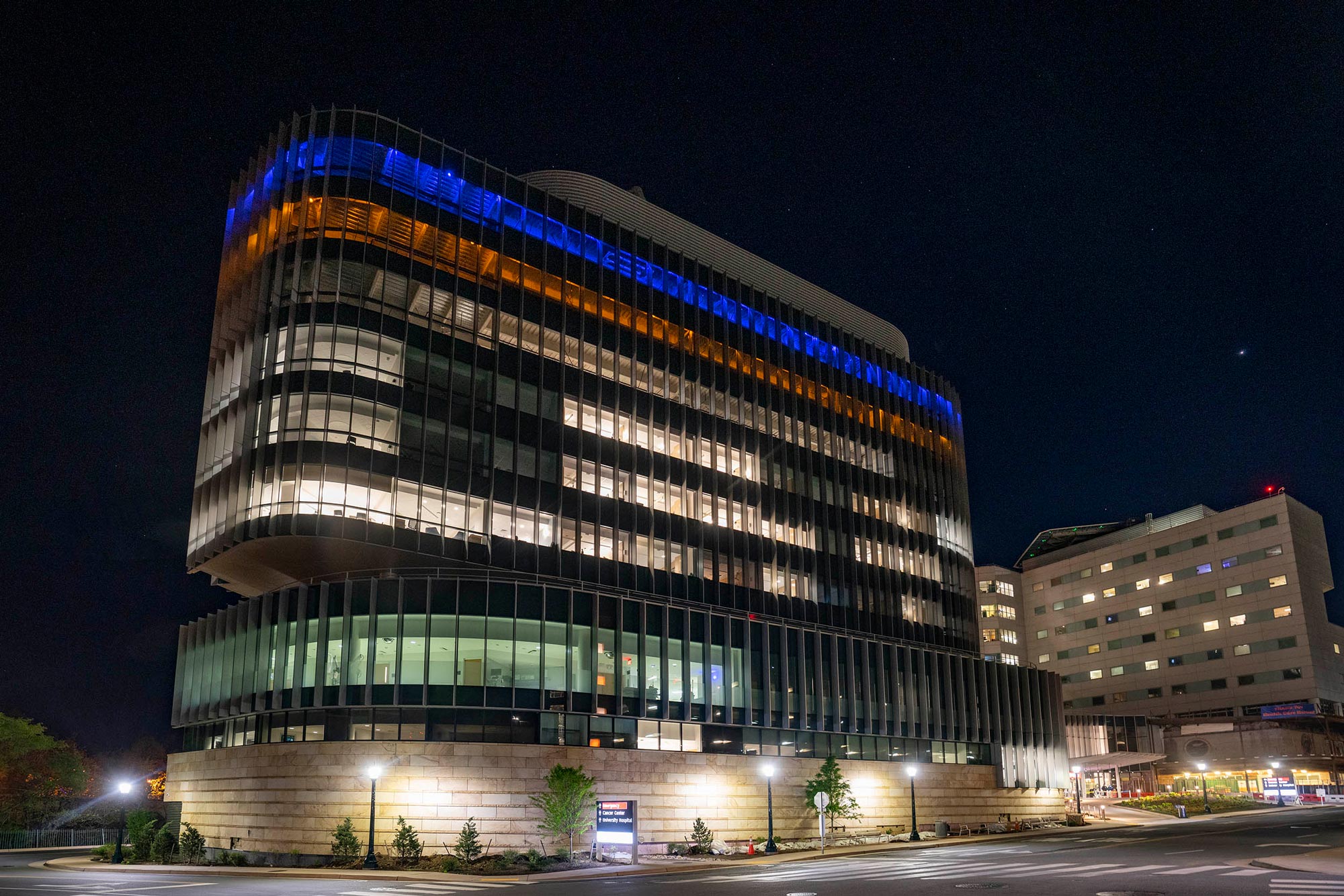Find the latest information on the University’s response to the coronavirus here.
The antiviral drug remdesivir, tested against COVID-19 at UVA Health and other sites, helped patients with advanced cases recover 31% faster than patients who received a placebo, the National Institutes of Health report. The drug also appeared to improve survival.
Trial-wide, the median recovery time for patients who received remdesivir was 11 days, compared with 15 days for those who received placebo, according to preliminary data released by the NIH. In terms of mortality, 11.6% of placebo recipients died, compared with 8% of remdesivir recipients.
“This is the first clinical trial to demonstrate an effective treatment for COVID-19,” said Dr. Patrick Jackson, the principal investigator of the trial at UVA. “Remdesivir will be one tool we can use to turn the tide of this pandemic.”
For the study’s purposes, “recovery” was defined as being well enough to leave the hospital or return to normal activities. The NIH said it would release additional details in a forthcoming report, but it did not specify when the report would be released.
“I’m extremely proud for the clinical research staff, pharmacists and others who helped us launch this trial in record time,” said Dr. Taison Bell, a University of Virginia critical care and infectious disease specialist. “Because of their efforts, we were able to get a win for our community in the fight against COVID-19.”
About the Remdesivir Trial
Remdesivir has been tested at UVA and 67 other hospitals around the world as part of the Adaptive COVID-19 Treatment Trial, or ACTT, the first trial of a potential medication to treat COVID-19 launched in the United States. By the time enrollment was completed April 19, a total of 1,063 patients had been enrolled in the randomized, controlled trial, the NIH reported.
Hospitalized adult patients with COVID-19 and significant symptoms – including difficulty breathing, using supplemental oxygen or needing a ventilator – were eligible to participate. Participants were assigned at random to receive either remdesivir or a placebo intravenously for as long as 10 days. Patients otherwise received the current standard of care.
After the encouraging initial results, remdesivir will move into a second phase of testing, in which it will be compared to another drug, baricitinib, to determine which is the most effective treatment option.
Dr. K. Craig Kent, UVA’s executive vice president for health affairs, noted the urgent importance of the research conducted at UVA and other trial sites.
“It is vital we find effective treatments for this very serious illness,” he said. “I’m proud UVA has been part of this trial, and I have deep gratitude for all the researchers and care providers who are working tirelessly in the battle against COVID-19.”
To keep up with the latest medical research news from UVA, subscribe to the Making of Medicine blog.
Media Contact
Article Information
April 30, 2020
/content/nih-antiviral-drug-tested-uva-speeds-covid-19-recovery

